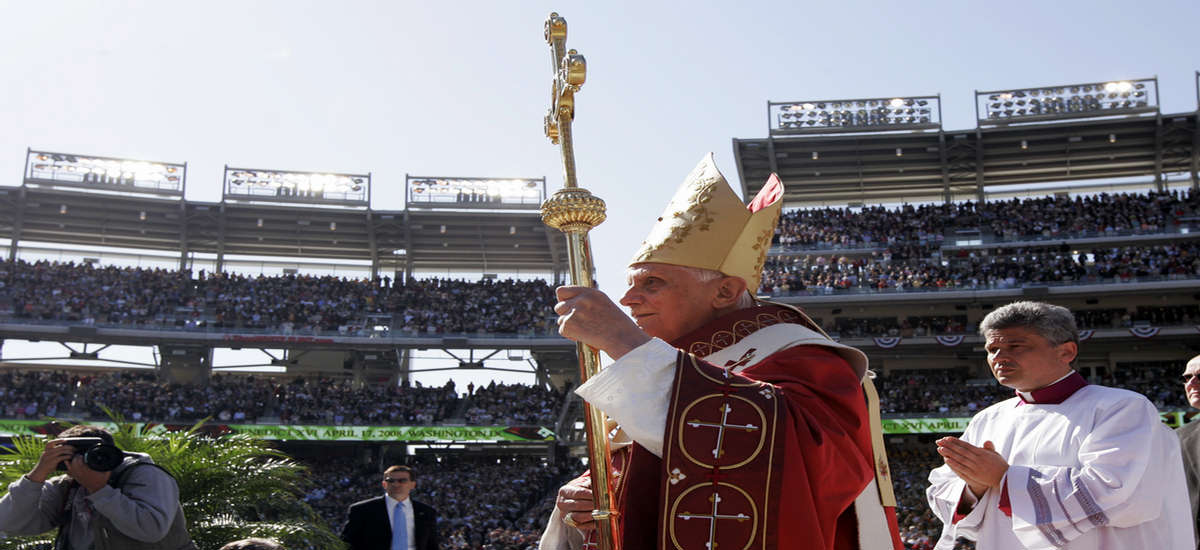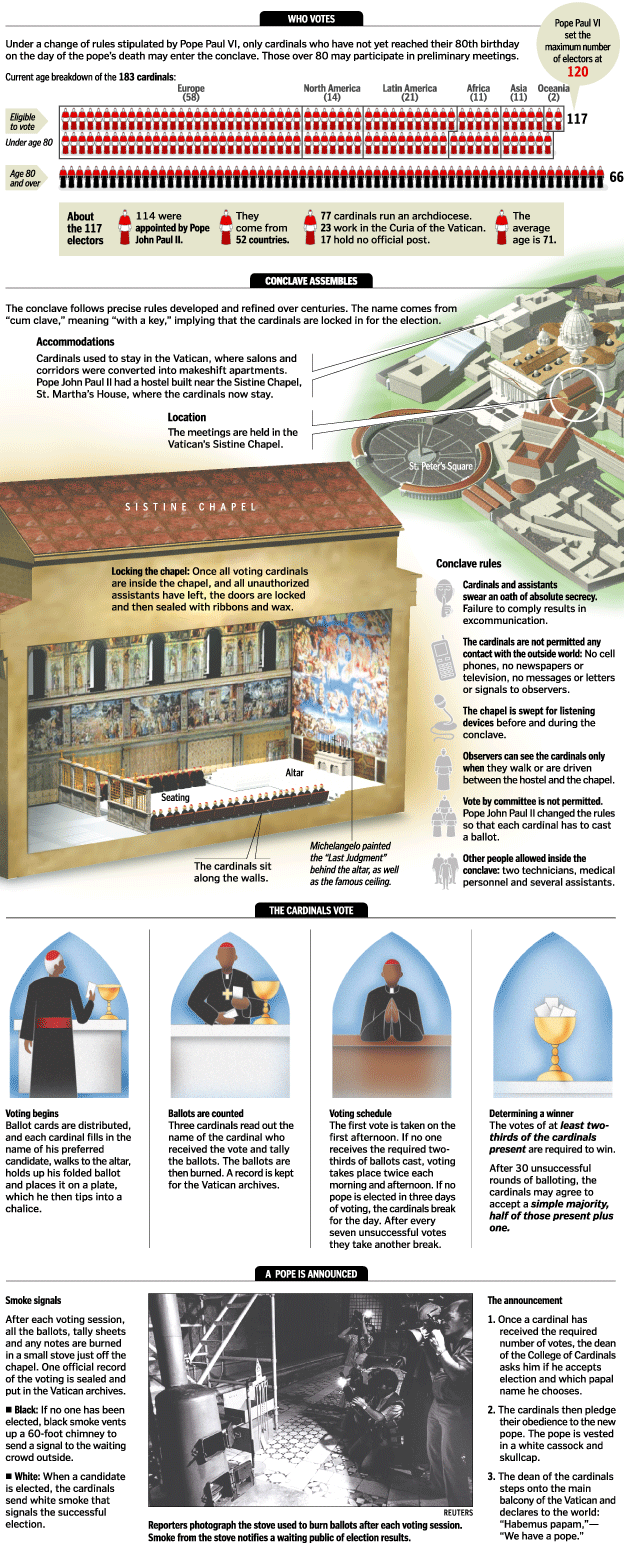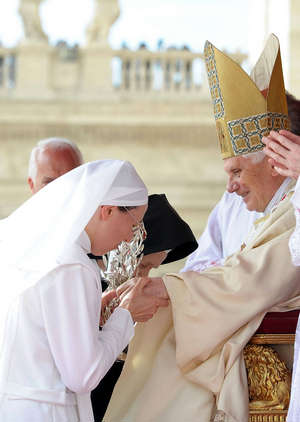
VATICAN CITY (Catholic Online) – Pope Benedict XVI will resign his office on February 28, 2013. He will be 86 years old on April 16, 2013. Some early observers indicated his age would make him some sort of caretaker Pope. His pontificate has demonstrated the observers were wrong. He has been an indefatigable and tireless missionary of a Pope.
With the humility which has characterized his extraordinary papacy, the announcement was simple and straightforward. It was made to a consistory of his brothers in the episcopate, cardinals who had gathered in Rome where he will soon approve over 800 causes for canonization. He will become the first Pope since 1294 to resign his office. Here is his complete statement:
*****
Dear Brothers,
I have convoked you to this Consistory, not only for the three canonizations, but also to communicate to you a decision of great importance for the life of the Church. After having repeatedly examined my conscience before God, I have come to the certainty that my strengths, due to an advanced age, are no longer suited to an adequate exercise of the Petrine ministry.
I am well aware that this ministry, due to its essential spiritual nature, must be carried out not only with words and deeds, but no less with prayer and suffering. However, in today’s world, subject to so many rapid changes and shaken by questions of deep relevance for the life of faith, in order to govern the bark of Saint Peter and proclaim the Gospel, both strength of mind and body are necessary, strength which in the last few months, has deteriorated in me to the extent that I have had to recognize my incapacity to adequately fulfill the ministry entrusted to me.
For this reason, and well aware of the seriousness of this act, with full freedom I declare that I renounce the ministry of Bishop of Rome, Successor of Saint Peter, entrusted to me by the Cardinals on 19 April 2005, in such a way, that as from 28 February 2013, at 20:00 hours, the See of Rome, the See of Saint Peter, will be vacant and a Conclave to elect the new Supreme Pontiff will have to be convoked by those whose competence it is.
Dear Brothers, I thank you most sincerely for all the love and work with which you have supported me in my ministry and I ask pardon for all my defects. And now, let us entrust the Holy Church to the care of Our Supreme Pastor, Our Lord Jesus Christ, and implore his holy Mother Mary, so that she may assist the Cardinal Fathers with her maternal solicitude, in electing a new Supreme Pontiff. With regard to myself, I wish to also devotedly serve the Holy Church of God in the future through a life dedicated to prayer.
From the Vatican, 10 February 2013
BENEDICTUS PP XVI
****
I must confess – I was not surprised. I had been sensing, in that strange "baptized hunch" way – which is sometimes from the Holy Spirit and sometimes not – that he was not to be with us much longer. I watched closely for word on his declining health. Like many I have noted his frailty over the last year as he took to using assistance in his mobility. But nothing emerged. Then today came this honest and humble announcement from this Successor of Peter who so appropriately demonstrates that title "Servant of the Servants of God".
I vividly remember the day in 2005 when the announcement of his own election to the Petrine ministry was made. "Habemus Papem", "We Have a Pope!" the Cardinal announced. Pope Benedict XVI stepped forward onto the balcony overlooking St. Peters Square calling himself "a simple, humble worker in the vineyard of the Lord." The applause was uproarious. The joy filled not only that Square but the hearts of millions throughout the entire world who had prayed for this moment.
He continued ". that the Lord can work and act even with insufficient means consoles me, and above all I entrust myself to your prayers. In the joy of the risen Lord, trusting in his permanent help, we go forward." Then the questions began. All of them related to one singular question "Where will the Pope lead us?" Morning papers and television commentaries were besieged with alleged answers. They ranged from ecstatic commentary to morose complaint, depending, as if often the case, on the speaker or writers positions on the so called hot button issues that the dominant media culture seems to be obsessed about.
However, like his beloved predecessor, Blessed John Paul II, Benedict XVI was never so obsessed. In fact, he approached the world in an entirely different way. That way is the ever ancient but ever new way of the Gospel of Jesus Christ as lived, loved, proclaimed and taught by the Catholic Church for two millennia. He, like John Paul, could not be fit into the tired labels that so many try to fit him into. He is simply a faithful Catholic Christian.
I was overcome with joy,
gratitude and profound hope for the future when I heard the news while I was visiting with a priest friend in Richmond, Virginia. We were immersed in an intense conversation when another friend, then still a Bishop of the Charismatic Episcopal Church, called me on my cell phone to tell me the news. "Have you heard?" he asked, "Habemus Papem, We have a Pope!" he proclaimed, hardly able to contain his own joy. My priest friend and I immediately turned the television on and, with the entire world, witnessed history.
One day later, I realized how significant it was that a Christian from another community told me, a Catholic Deacon, the "we" had a Pope. I believed it was a seed and sign of the movement of the Holy Spirit toward the coming full communion of the whole Christian Church. Now today, while I was still engaged in my morning prayer, that same man informed me of this news of a papal resignation! However, he is a fruit of the ministry of Benedict the Builder Pope. Shortly after the announcement in 2005, my friend resigned his ministry and began the process which led him into full communion with the Catholic Church. He had no assurance of any ordained ministry; he was just drawn by the splendor of truth which is the ancient but ever new Catholic faith and could not resist its pull.
"How very fitting" I thought to myself this morning "that Fr Randy Sly would inform me of the resignation of Pope Benedict XVI". He did so while he was on his way to celebrate the Holy Eucharist. Fr Randy Sly was one of the first to be ordained to the holy priesthood for the Ordinariate of the Chair of St Peter and now serves as a Catholic priest. As I write, he stands at the altar as fruit of the extraordinary pontificate of Benedict the Builder Pope!
I believed from the beginning of his papacy that Benedict XVI would be a builder. He is one of the most brilliant, insightful and fecund theologians of the age. He knew the need for a New Evangelization and he understood the challenges that the Church faced as she walked forward to the Third Christian Millennium. He was present at and participated in the Second Vatican Council. He understands the authentic teaching of that Council and has led the way in its proper implementation in many areas of life, both within the Church and in her mission to the modern world.
He also understands the way that the Council was hijacked in some circles, disregarded in others and absolutely misinterpreted in still others. He has been a voice for dynamic orthodox and faithful Catholic Christian faith, practice, worship and life. In his homily prior to the convening of the conclave where he was chosen to fill the Chair of Peter, then Joseph Cardinal Ratzinger gave a prophetic insight: "How many winds of doctrine we have known in recent decades, how many ideological currents, how many ways of thinking… The small boat of thought of many Christians has often been tossed about by these waves – thrown from one extreme to the other: from Marxism to liberalism, even to libertinism; from collectivism to radical individualism; from atheism to a vague religious mysticism; from agnosticism to syncretism, and so forth.
"Every day new sects are created and what Saint Paul says about human trickery comes true, with cunning which tries to draw those into error (cf Eph 4, 14). Having a clear faith, based on the Creed of the Church, is often labeled today as a fundamentalism. "Whereas, relativism, which is letting oneself be tossed and "swept along by every wind of teaching," looks like the only attitude (acceptable) to today’s standards. We are moving towards a dictatorship of relativism which does not recognize anything as for certain and which has as its highest goal one’s own ego and one’s own desires."
Some attempted to misuse this insight to paint him as rejecting the modern world. That was nonsense. What he rejects is the emptiness of modernity and what he aptly referred to as the dictatorship of relativism. What he proposes is a different path, not to the past, but to a future of hope and authentic freedom. It is the reassertion of saving and liberating truth that paves that path to authentic human flourishing and freedom. It is to be found in Jesus Christ who proclaimed that He is the "Way, the Truth and the Life." Jesus reminds every person in every age, that we can "know the truth" and that "the truth will set you free." Benedict has been his mouthpiece and Vicar.
His choice of the name Benedict was a sign of his pontificate. One of the young priests who commented on his election noted that then Joseph Cardinal Ratzinger visited Subiaco before all the events in Rome began. He prayed and rededicated himself to the work of the Church for the future. Benedict the great monk helped to rebuild the Church of his age and spread the influence of Christendom. Pope Benedict XVI has laid the seeds for a similar work in the Third Millennium.
I remember that first homily: "Dear Ones, this intimate recognition for a gift of divine mercy prevails in my heart in spite of everything. I consider this a grace obtained for me by my venerated predecessor, John Paul II. It seems I can feel his strong hand squeezing mine; I seem to see his smiling eyes and listen to his words, addressed to me especially at this moment: ‘Do not be afraid!’
He emphasized the work of authentic ecumenism proclaiming: "Thus, in full awareness and at the beginning of his ministry in the Church of Rome that Peter bathed with his blood, the current Successor assumes as his primary commitment that of working tirelessly towards the reconstitution of the full and visible unity of all Christ’s followers. This is his ambition, this is his compelling duty."
Pope Benedict XVI has been anything but a caretaker. He has been a rebuilder of foundations. I believe he will go down in history as one of the great popes. He continued the pastoral visits of his predecessor with amazingly fruitful travels around the world. The youth of the world flocked to World Youth days and his genuine love for them – and they for him – was evident. He pastorally and decisively dealt with serious matters concerning the need for a purification of the Church.
He has been exactly what he told us he was when he began his service, a "simple, humble worker in the vineyard of the Lord" Notice how little fanfare accompanied his historic resignation! Clearly, to this successor of Peter, it is simply not about him, but about the Lord whom he serves. His diminutive size and humble manner reveal the holy heart of this man totally given over to the Lord. He is so refreshingly counter cultural in this age of narcissism and self love.
He is a scholar of the highest order, yet has been able to communicate with simplicity and beauty because he is a man of deep prayer. He has given continual teaching to the faithful – including some of the finest hagiography in centuries – during his Wednesday Catecheses. He made Church history, when Motu Propio, he released of the Apostolic Constitution on Groups of Anglicans which has begun the healing of the divided Western Church. The fruits of these Ordinariates will be recounted by future historians as among the most important events in the Third Millennium of the Church.
He earned the great respect of Patriarchs and leaders of the Orthodox Church and made progress toward some form of communion between Eastern and Western Christianity which could make the Third Millennium a millennium of communion. He championed the re-christianizing of Europe and passionately promoted the New Evangelization of the Church – even establishing a new Pontifical Council on the New Evangelization. He has been a champion of the New Ecclesial movements and helped to ensure that they are rooted in the heart of the Church and received as gift for the missionary work of the Church in this hour.
He has doggedly defended the Christian roots of the West and defended religious freedom as a fundamental human right. He has engaged the Islamic world with great charity and courage on the ground of dialogue in truth. He began the Courts of the Gentiles outreach engaging atheists and agnostics.
The Church has been truly blessed to have Pope Benedict XVI at the helm of the Bark of Peter as she sails into the Third Christian Millennium. I am sure that as the news of this historic resignation sinks in I will return to write and reflect, along with many others. For now, I ask all of our readers to pray for Pope Benedict XVI and for the Church which he has led with such beauty, simplicity, depth and grace. But even more importantly, I ask you to pray for His Successor.
How desperately the Church, and the world into which she is sent, needs another Champion at the helm. I know that the Lord will hear these prayers because, after all, this is His Church, and the gates of hell will not prevail against her. (Matt. 16:18) And, Benedict the Builder Pope secured the Firm Foundations so that the work of Jesus Christ may continue through His Mystical Body on earth.
The period between the death or resignation of a Pope and the election of his successor, when the See of Peter is vacant, is called the Interregnum. This Latin term means between the reign (of one Pope and another). It is a period governed by papal law, which admits of no changes to Church governance, or to the spiritual or material patrimony of St. Peter, save the election of his successor.
How a Pope is Elected
Voting Procedure
There are three phases to the election process. They are:
1) Pre-Scrutiny, during which ballots are prepared and distributed.
2) Scrutiny, during which the ballots are collected and counted.
3) Post-Scrutiny, during which the ballots are counted, checked and burned.
1. Pre-Scrutiny
During the Pre-Scrutiny the ballots are prepared and distributed, and, 9 Electors are chosen by lot to serve as 3 Scrutineers, 3 Infirmarii and 3 Revisers.
The Scrutineers are three Cardinal Electors chosen by lot to gather and count the ballots. They stand at the altar as the Electors come up individually to deposit their votes. One of them also collects the votes of those present who are not physically able to come up to the altar. Afterwards, sitting at a table in front of the altar they tabulate the ballots to determine if an election has occurred.
The Infirmarii are three Cardinal Electors chosen by lot to take ballots to Electors who although within the enclosure of the Conclave are too sick to be present in the Sistine Chapel. They take with them a locked box which, having been shown to the other Electors to be empty, receives the votes of the infirm. They return it unopened to the Scrutineers.
The Revisers are 3 Cardinal Electors chosen by lot to check the ballot count and the notes of the Scrutineers to determine if the tabulation of the ballots was carried out exactly and faithfully.
2. Scrutiny
After all ballots are in, including those brought from the sick by the Infirmarii, the 1st Scrutineer shakes the receptacle several times to mix the ballots. Then the 3rd Scrutineer counts them, placing them in a second, empty, receptacle. If the number of ballots does not equal the number of electors, they are burned, and a second vote taken immediately. Otherwise, the Scrutineers proceed to tabulate the vote.
Sitting at a table in front of the altar, the 1st Scrutineer silently reads the name on a ballot, passes it to the 2nd Scrutineer who does likewise, and then passes it to the 3rd Scrutineer, who reads the name aloud and then writes it down. Each Elector also writes it down on a sheet provided for this purpose. The ballot is then pierced with a needle through the word eligo (I elect) and placed on a thread for security.
When all ballots have been read the ends of the thread are tied in a knot and the ballots are placed in a receptacle on one end of the table.
3. Post-Scrutiny
The Scrutineers tabulate the vote count they recorded by individuals receiving votes. They do this on a separate sheet of paper from that on which the vote count was first made. The Revisers then verify the results.
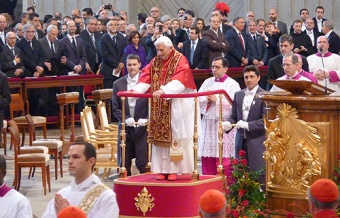
.- On Feb. 11, Pope Benedict made it public that he will step down from his role as head of the Catholic Church, raising a number of questions about how the process of resignation works.
Only two other Pope’s have resigned their post in the history of the Church, with the last one being Gregory VII, in 1415.
But in retrospect the idea was perhaps not so distant from the mind of Benedict XVI.
The first clear hint of such a move being on the mind of Pope Benedict came in his 2010 interview with the German journalist Peter Seewald.
That series of questions from Seewald later became the book “Light of the World.”
In that work the Pope responded to a question about whether a pontiff could resign: “Yes. If a Pope clearly realizes that he is no longer physically, psychologically, and spiritually capable of handling the duties of his office, then he has a right and, under some circumstances, also an obligation to resign.”
The first Pope to resign in the history of the Church was St. Celestine V, who was elected to office in Dec. 1294 after a conclave that lasted two years and three months.
He was known as a holy priest who dedicated himself to a life of prayer as a hermit. However as Pope his administration of the Church was poor and the Roman Curia fell into disarray.
In July 1294 he resigned from his office, becoming the first Successor of Peter to do so. After his resignation, St. Celestine returned to a life of prayer, despite being imprisoned by his successor.
The current Code of Canon Law, the regulations that govern the life of the Church, now makes it possible for a Pope to leave his office.
Canon 332, Paragraph 2 says: “Should it happen that the Roman Pontiff resigns from his office, it is to be required for validity that the resignation be freely made and properly manifested, but it is not necessary that it be accepted by anyone.”
Father Federico Lombardi told journalists at a Feb. 11 Vatican press conference that he himself was not shocked by the news, especially once he recalled the Pope’s response in “Light of the World.”
At that point, Fr. Lombardi said he knew the Pope was fully aware he had the right to do resign.
Pope Benedict will officially retire on Feb. 28, 2013 at 8:00 p.m., at which point the seat of Peter will be considered vacant.
He will then travel to the papal summer retreat in Castel Gandolfo, which is about 15 miles southeast of Rome.
Once renovations are complete on Mater Ecclesia monastery inside the Vatican, the former pontiff will move there for a period of prayer and rest.
The preparations for the Conclave of Cardinals to elect a new Pope will begin as soon as Benedict XVI retires on Feb. 28.
During a conclave, all the cardinals below the age of 80 come to Rome to pray, consider and vote for who the next Pope will be, all behind closed doors.
Fr. Lombardi expects that there will be a new Pope by Easter.
Pope’s resignation invokes sadness, gratitude from US bishops
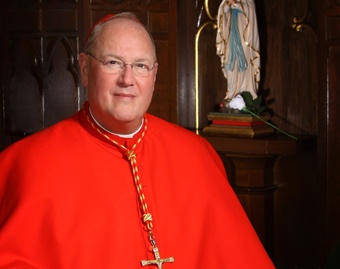
.- The U.S. bishops voiced sorrow over the news of Pope Benedict XVI’s resignation, as well as appreciation for his eight years of leadership and service to the Church.
“The Holy Father brought the tender heart of a pastor, the incisive mind of a scholar and the confidence of a soul united with His God in all he did,” said Cardinal Timothy M. Dolan of New York, president of the U.S. Conference of Catholic Bishops. “His resignation is but another sign of his great care for the Church.”
Cardinal Dolan’s Feb. 11 statement came hours after Pope Benedict announced his decision to resign from his papal duties, effective Feb. 28.
The Holy Father cited concerns of advancing age and declining strength, saying that for these reasons, he is unable to “adequately fulfill the ministry entrusted to me.”
Cardinal Dolan reflected on the Pope Benedict’s service to the Church, commending the Holy Father for his work to proclaim the Gospel in all that he did.
“Pope Benedict often cited the significance of eternal truths and he warned of a dictatorship of relativism,” he said. “Some values, such as human life, stand out above all others, he taught again and again. It is a message for eternity.”
“He unified Catholics and reached out to schismatic groups in hopes of drawing them back to the church,” the cardinal continued. “More unites us than divides us, he said by word and deed. That message is for eternity.”
Recalling Pope Benedict’s visit to the United States in 2008, Cardinal Dolan reflected on his work as a pastor, statesman and spiritual leader.
“He spoke for the world’s poor when he visited them and wrote of equality among nations in his peace messages and encyclicals,” the cardinal added. “He pleaded for a more equitable share of world resources and for a respect for God’s creation in nature.”
He also noted that despite the pontiff’s advanced age when he was elected in 2005, “he set out to meet his people – and they were of all faiths – all over the world.”
He referenced Pope Benedict’s particular care for those facing persecution, poverty and pain, noting the Pope’s visits to the Middle East, and Africa as well as the Pope’s private meetings with victims of clerical abuse.
In addition, he recalled the Holy Father’s meetings with young people at World Youth Day gatherings in Australia, Germany and Spain.
Cardinal Dolan said that Pope Benedict’s words, actions and writings “moved and changed” people, urging them “to know and have a personal encounter with Jesus Christ.”
Calling the resignation “an important moment in our lives as citizens of the world,” he concluded by reiterating his gratitude and calling for hope-filled prayers “that the College of Cardinals under the inspiration of the Holy Spirit choose a worthy successor to meet the challenges present in today’s world.”
Thank You From Khazen.org – Malek Fady el Khazen
On Behalf of the Maronite nation, I would like to thank our Holly Father Pope Benedict XVI.
You gave the weak Maronite Nation strength and hope, with your visit and attention to the Lebanese Church. You strengthen the foundation of the Church through your leadership. teaching and love.
As your last international trip, you chose Lebanon. This means a lot for us the Maronites! We really value this trip that we will never forget. It will always be in our heart. We will continue through your teachings.
You are the Pope that re-built the Catholic Nation. You have unified the faithful around the world, by engaging with all of the 5 continents and making all of us part of the decision. Thank You!
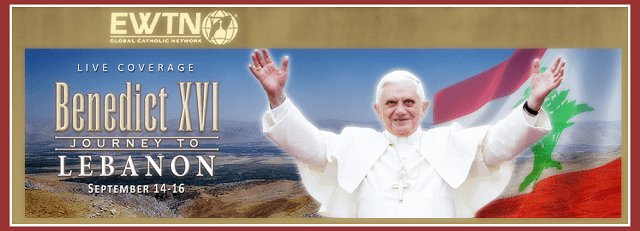
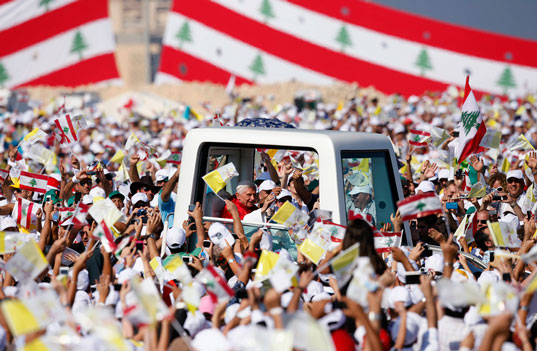
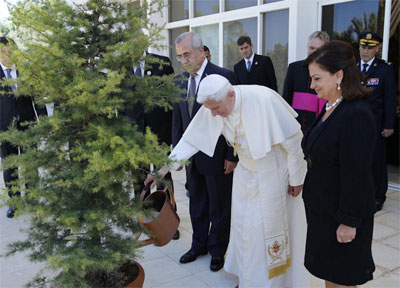
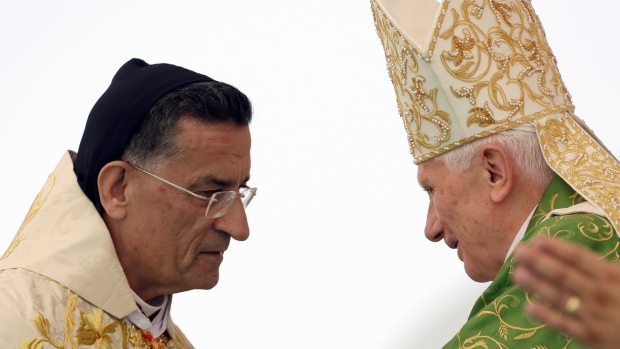
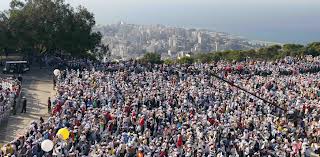
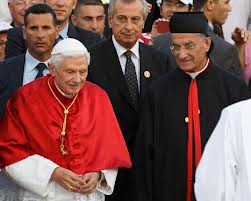
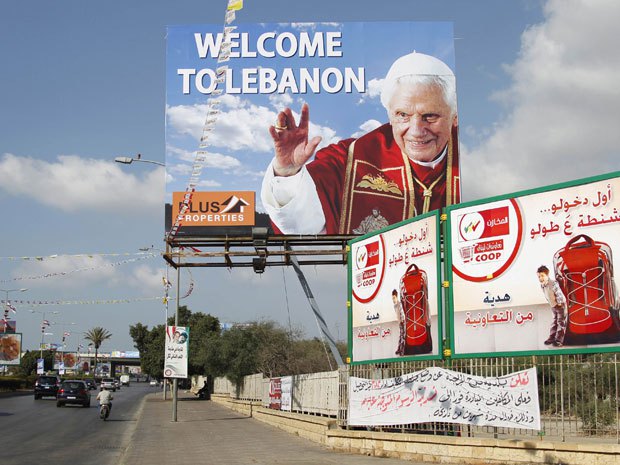
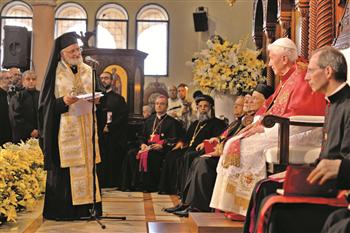
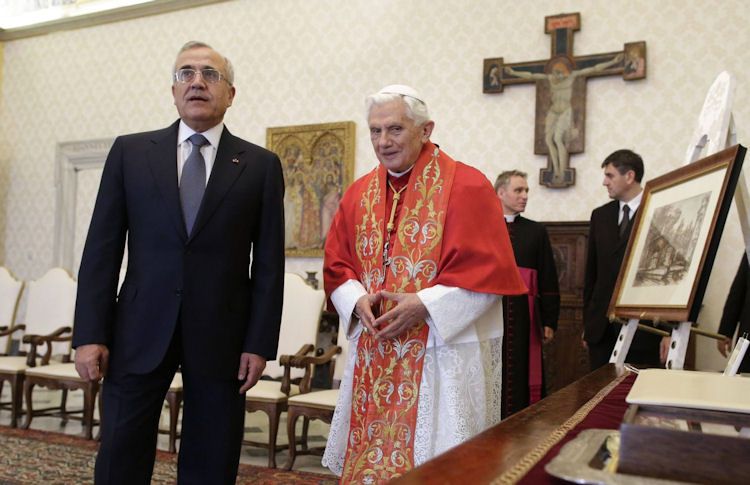
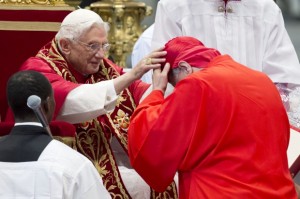
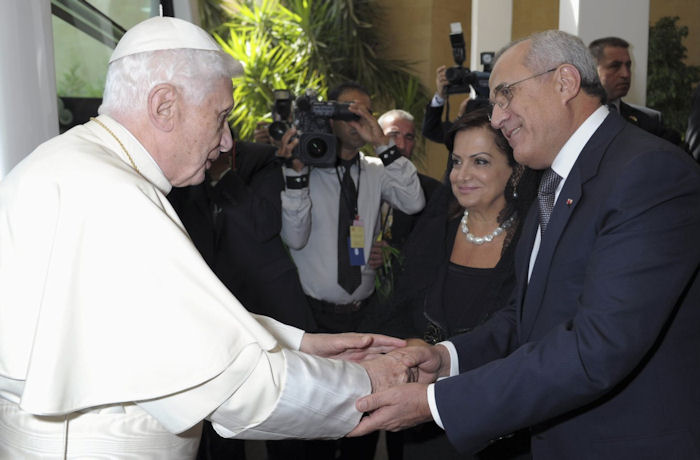
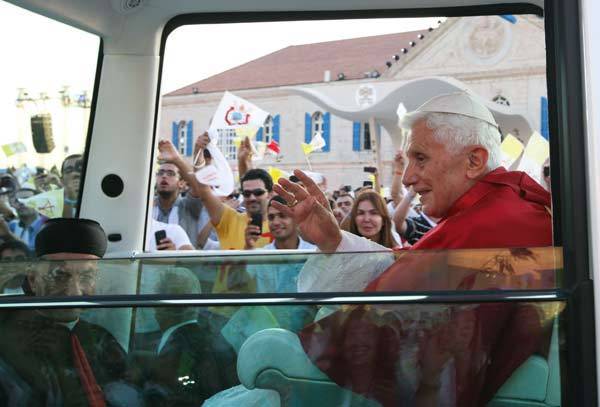
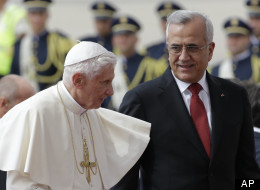
Here are seven good reasons why the pope’s legacy is secure:
- Religion for Pope Benedict XVI is as much a public issue as it is a private one. In 2008, he warned American bishops against “the subtle influence of secularism,” holding that “any tendency to treat religion as a private matter must be resisted.”
- The pope made it clear that religious freedom was not only a God-given right, it was “the path to peace.”
- He knew religion could be abused, leading even to violence. His much misunderstood 2006 Regensburg University lecture was really about the uncoupling of religion from reason (reason not united to faith also leads to violence).
- The pope reached out to dissidents on the right and the left, seeking to bring them to communion. Not all his efforts succeeded, but his attempts were noble.
- No one did more to successfully address the problem of priestly sexual abuse than Joseph Ratzinger. Just weeks before he was chosen to be the new pope, he spoke bluntly about this issue: “How much filth there is in the Church, and even among those who, in the priesthood, ought to belong entirely to Him!”
- Addressing those who still blame Jews for the death of Christ, the pope settled the issue with authority by pointing out that no one should be blamed since, as he argued, the crucifixion was necessary for God’s plan of universal redemption.
- The pope’s many references to what he called “the dictatorship of relativism” were a constant reminder that one of the greatest threats to freedom today is the abandonment of the search for truth.
Pope Benedict XVI’s willingness to step aside comes as a surprise this Monday morning. What is not surprising is his humility. Indeed, it is one of his most defin ing characteristics, one that separates him from today’s ego-centric public figures.
Joseph Ratzinger has been the Pope of all essential. He will go down in history as a great preacher that made the content of faith available to many types of people.
POPE AND CHILDREN
During his seven years, Benedict XVI has avoided being at the center of conversation. His goal is to spread knowledge of the Gospel: that Jesus truly existed and he is one with God. He spent his spent time writing his trilogy “Jesus of Nazareth.”
He has also spent a considerable amount of energy towards reconciliation. He reached out to the victims of sexual abuse. He also outreached to Muslim leaders, to the traditional Lefebvrians, and perhaps one of his biggest legacies, reconciliation between faith and reason.
He also modernizes the Papacy because he resigned with the strength of mind and body to show that it is a conscious decision taken on his own free will. It sets a precedent for future successors to step down when they deem it necessary.
